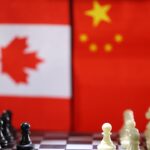China will take seriously questions, complaints, and even criticism raised by other WTO members, but will not accept those criticisms based on expectations or requirement beyond the WTO’s provisions, as they are unreasonable and unfair, a senior Chinese official said Thursday.
“Some WTO members raised concerns or expectations in some other areas, which may have exceeded WTO regulations. It is inappropriate for them to say that China has not fulfilled WTO obligations based on their expectations beyond WTO,” China’s Vice Minister of Commerce Wang Shouwen said at a press conference on Thursday on the latest WTO policy review of China as a member.
For example, in terms of intellectual property (IP) protection, there is a lot of difference between the provisions of the WTO’s IP agreement and the provisions of some free trade agreements. It would be obviously inappropriate if the WTO requires China to implement IP protection provisions of some high-standard free trade agreements, Wang noted.
Some WTO members also raised the hope that China should further widen its market investment access, which is understandable, but “it is unreasonable, unfair and unacceptable to accuse China of not fulfilling WTO rules.”
“In the field of investment, China has fully fulfilled its WTO obligations, and we are willing to continue to expand and open up through independent measures. There were more than 190 items in our first negative list of investment access, and now there are only 30 items remaining. We are taking big strides in opening up,” Wang said.
His remarks followed the eighth trade policy review of China in Geneva on October 20. During the event, a total of 65 WTO member representatives gave positive comments on China’s trade policy.
The 65 representatives made comments and asked 2,562 question to China via video, a record high, which is 16 percent more than the seventh review three years ago, Wang said, regarding the review as a successful one.
The range of issues raised for China during the review was relatively wide, involving trade in goods and services, IP rights, market access and so on.
China’s obligations under the WTO have already been fully fulfilled, and its commitments have also been fully delivered, which has been broadly affirmed and recognized by several WTO director-generals and most WTO members, Wang said.
China became a member of WTO on December 11, 2001.
China’s goods tariff has been reduced to 7.4 percent, lower than all other developing country members and reaching near the levels of developed country members. It was below the 9.8 percent level as promised. The figure was 15.3 percent at the beginning of China’s accession to the WTO.
Apart from goods, China has also widely opened its market in the services industry. The WTO accession protocol and relevant working group reports stipulated that 100 sub-sectors in nine categories need to be opened in 2007. Now, China has actually opened nearly 120 sub-sectors, exceeding its commitments.
In the summary of the WTO Secretariat’s report on China’s economy during the review, it acknowledged China’s contribution in powering the world economy since its accession.
“Since China’s previous Trade Policy Review in 2018, the country’s economy has been a major driver of global growth… The long-term structural changes in China’s economy, away from agriculture and industry toward services, continued during the review period. Services now make up some 55 percent of GDP. Remarkable progress on poverty alleviation has been achieved over the past decades, resulting from high GDP growth rates and market-oriented reforms,” the report said.
Global Times


